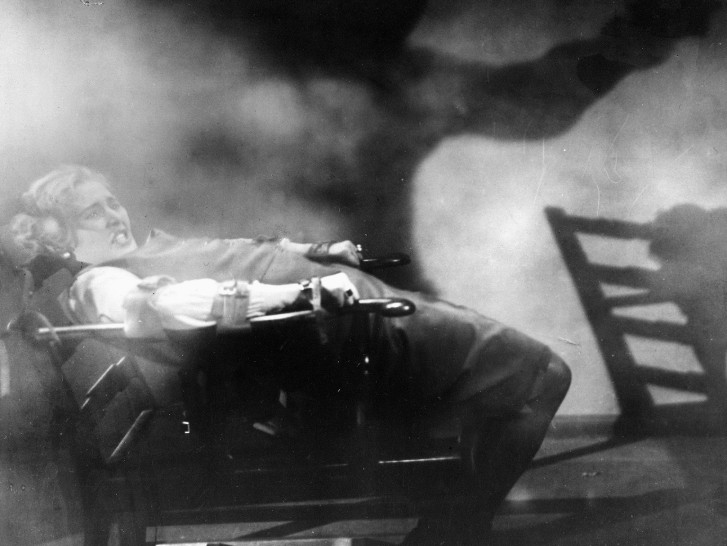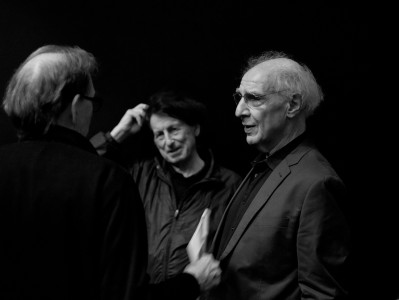
Spies introduction by accompanist and film historian Martin Marks.
Transcript
John Quackenbush 0:00
July 26, 2014. Harvard Film Archive screened Fritz Lang’s Spies. This is the introduction by pianist and film historian Martin Marks.
[APPLAUSE]
Martin Marks 0:18
It's not good to be introduced as an expert and then you have to prove yourself at the piano, but I will try. This is a wonderful film. I did not know it at all until I was asked to play for it. I've been working from a video, which I believe is pretty much the same print as this, and the only issue, then, will be how fast should it go? And they don't give that kind of information on videos, in terms of what conversion speed they use. I think most of you know that silent films had variable speed. They were not fixed until sound film required that be done with the projection equipment. And the speed could be anywhere from—by this point—anywhere from somewhere just under 20, maybe, to 24 or even more frames per second. It's really odd, because even if you run this slow, the fast stuff looks too fast sometimes. But then some stuff looks natural, and you have to take your cue from that. So I leave that to the projectionist. What that means is that every time you play a live accompaniment, it's a crapshoot, in many ways, if you're trying to time things very precisely. I tend to pick a lot of pieces, cut and paste in the old fashioned way. I try to pick pieces that could have been used during the silent period, or not too much later than that. I don't use a contemporary sound, although in this case, I do feel a slight kinship with one theme from more recent movies. Maybe you'll get it, maybe you won't. There's a lot of music. And if I stop every once in a while, it's maybe just ’cause I feel like I have to clean my ears out, and give my knees and my fingers a little break. And maybe you could use one too. But generally, you’ve got to keep going. And I prepare, and then I leave a lot to hazard. And hopefully, there's a muse up there somewhere who's ready to help out. If not, you'll just hear me play anyways, ’cause that's what you have to do. Alright, enjoy this film. I really do love it. And I found it, by the way, very confusing at the beginning. There's so many threads and characters being jumbled up. And it takes a good hour before you start to figure out the relationships, and Lang is very cryptic sometimes. And I think that's part of the fun of the film. It's not just a spy movie, but it's like you're a detective. And you have to figure out what's what, and why—why are we seeing this now, and what, what's it all about? It comes into focus as it goes on. Thank you.
[APPLAUSE]
©Harvard Film Archive
Related film series
Explore more conversations
Saul Levine

Alfred Guzzetti

Margaret Honda


